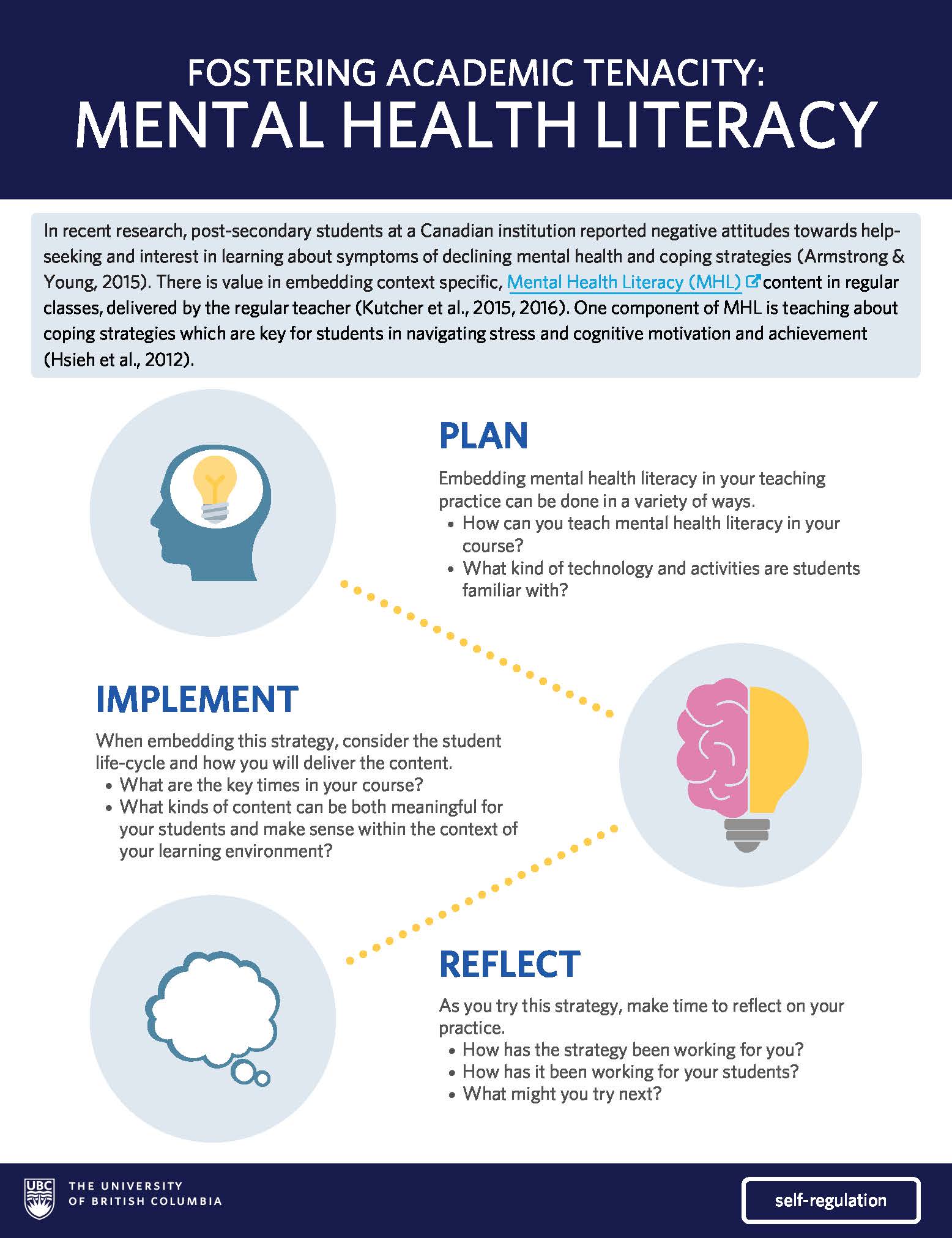In recent research, post-secondary students at a Canadian institution reported negative attitudes towards help-seeking and interest in learning about symptoms of declining mental health and coping strategies (Armstrong & Young, 2015).
Mental Health Literacy (MHL) programming is context dependent (Kutcher et al., 2016) and there is value in embedding content in regular classes, delivered by the regular teacher (Kutcher et al., 2015). Developing effective coping strategies that support students’ ability to navigate stress, cognitive motivation, and achievement is a key component of MHL in an educational context (Hsieh et al., 2012).
Promising Practices
Selected References and Measures
Go Further

Recommended Citation: Health Promotion & Education, UBC (2019). Fostering academic tenacity: Embedding mental health literacy. Retrieved from: wellbeing.ubc.ca/wble
We gratefully acknowledge the financial support for this project provided by UBC Vancouver students via the Teaching and Learning Enhancement Fund.